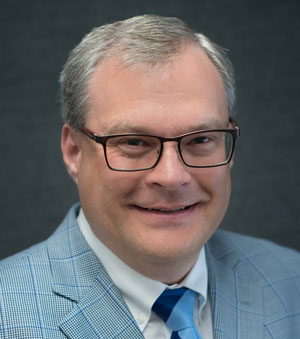By Laura Thill
Culture, clarity and talent development help define a DSO, especially as it grows in size.

To deliver great care, the people within an organization must feel compelled to serve others. They must be clear on the vision of the DSO and their role in supporting that vision, notes Bill Becknell, CEO, Mortenson Dental Partners. But as DSOs continue to grow, and multiple cultures, talents and operating philosophies merge, leadership must work hard to ensure that everyone within the organization is on the same page, he notes.
“A truly efficient DSO is one where each team member is aligned with the vision of the organization and utilizes their unique skills to ensure a great patient experience and optimum clinical outcomes,” says Becknell. “DSOs support doctors and practice teams, and as such, the role of the DSO is to remove and/or simplify administrative tasks at the practice level. This leaves more resources for the patient experience and delivering care. Ultimately, doctors have more time with patients and spend less time managing administrative duties; and employee engagement increases because they are doing the work they most enjoy.”
 For a DSO to be truly efficient, several factors must be in place, he continues: culture, clarity and talent development. In any healthcare organization whose aim it is to deliver great care, clinicians and other employees must feel a calling to serve others, he explains. For them, their work is much more than just a job. “Culture refers to a caring for others and a service aptitude that cannot be trained or taught, but is an innate part of one’s personality,” he says. “Certainly, this is the compelling reason most providers pursue a career in healthcare, but for DSOs it goes deeper than that. In order to deliver optimal healthcare, the team that surrounds the doctors and provides remote support must have a strong aptitude for serving others as well. By cultivating a culture that celebrates this commitment to service and empowers all team members to make the decisions that are best for the patient, the ability to operate efficiently follows.”
For a DSO to be truly efficient, several factors must be in place, he continues: culture, clarity and talent development. In any healthcare organization whose aim it is to deliver great care, clinicians and other employees must feel a calling to serve others, he explains. For them, their work is much more than just a job. “Culture refers to a caring for others and a service aptitude that cannot be trained or taught, but is an innate part of one’s personality,” he says. “Certainly, this is the compelling reason most providers pursue a career in healthcare, but for DSOs it goes deeper than that. In order to deliver optimal healthcare, the team that surrounds the doctors and provides remote support must have a strong aptitude for serving others as well. By cultivating a culture that celebrates this commitment to service and empowers all team members to make the decisions that are best for the patient, the ability to operate efficiently follows.”
Furthermore, each team member must be clear on the DSO’s vision and know their specific role in supporting it, Becknell points out. “This sounds obvious, but most DSOs are growing, either through denovo or acquisitions,” he says. As a result, many cultures, talents and expectations come together, making clarity of the DSO’s vision a challenging goal, he notes.
Finally, efficient DSOs rely on a defined set of operating philosophies and the ability to communicate and disseminate information throughout the organization, says Becknell. As DSOs grow, however, they must move from a tribal knowledge mindset, where knowledge is passed down from one generation to the next, to an approach where everything is defined and documented, and actions can be easily repeated. “This will not happen without an intentional process and investing in the proper mechanisms to support it,” he points out. Compounding this challenge, in a growing organization, such as a large DSO, everything moves and changes very quickly, he adds. “As such, processes are often being rebuilt and new systems are added. The entire process of best practices and education is regenerative. Investing in educating team members is critical to operating efficiently.”
Addressing the challenges
There are several challenges to achieving ultimate efficiency within the DSO, according to Becknell. First, there is the matter of basic geography. Once the footprint of the organization expands from one practice to two, everything becomes more complex, he notes. “The organization grows from one market to two or more,” he says. “Throw in a couple of acquisitions with similar – but different – cultures, and the clarity of mission and supporting philosophies of the business can quickly become challenged. It can also be challenging to intentionally pause and reevaluate your systems or processes, but this is necessary in order to grow upon a strong foundation. Sometimes, with rapid growth, foundational elements need to be improved in order to continue growing well.”
That said, there are products and services available to address the above obstacles. “For instance, at Mortenson Dental Partners, we are “very deliberate” in our communications, says Becknell. “And we communicate a lot,” he points out. “We have built an internal cadence of communication that ensures we all are connected, and we work together to solve opportunities as they arise. We have invested in an intranet that not only serves as an important communication channel; it’s also an excellent way to cultivate our culture and enable our team members to share how they are exercising our mission and values with each other.
“One of the benefits of being part of a growing organization with many diverse participants, is that we have a broad background to help us explore problem solving and innovation opportunities,” he continues. “Lastly, we have deployed a Learning Management System and the Google business suite, which helps us overcome some of the barriers of geography. Our supplier/partners have been very supportive of content for our in-person CE events.”
Planning ahead
To ensure the organization operates as efficiently as possible – today and moving forward – Mortenson Dental Partners conducts an annual strategic planning process: “We review our business performance and trends, as well as the environmental situation,” says Becknell. “Then we identify necessary strategic projects. This process generally produces more ideas and opportunity than are accomplishable, so we must prioritize and identify those projects that will have the best impact on our future success.”
Realistically, it’s close to impossible for a DSO to accomplish all of the many projects on its to-do list. “We must focus on the most important ones,” says Becknell. “I believe the quickly evolving development of the DSO will continue over the next several years, requiring them to innovate at an accelerated pace compared to other businesses. This will make our environment both exciting and very rewarding.”

